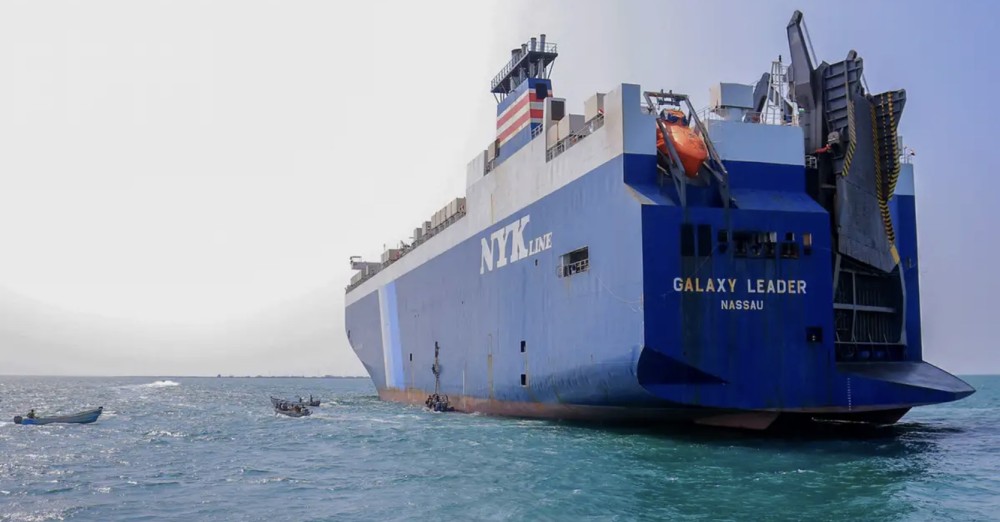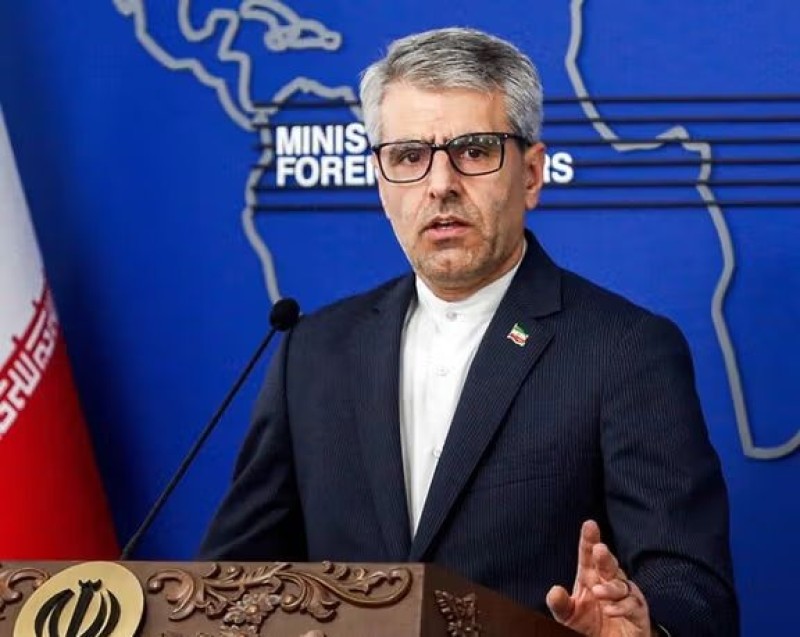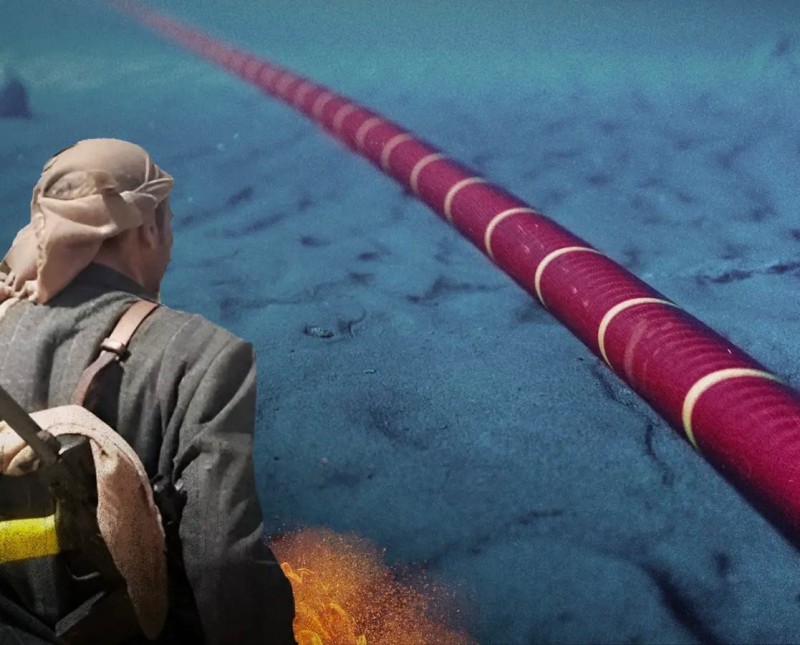Red Sea crisis: Can EU warships deter Houthi rebels?


With missiles flying over the Red Sea between the US, backed by the UK, and Yemen's Houthi rebels, the European Union (EU) is forming its own response to a new crisis — well beyond Israeli and Palestinian borders but bound up with the conflict in Gaza.
The EU is teeing up a new maritime mission to protect ships — and with them the bloc's trade interests — in a strategically vital region. The risk of dangerous escalation in deterring the Houthis is high, analysts warn, and the EU must tread carefully.
Why is the EU considering a Red Sea mission?
For several weeks, the Houthis, who control swathes of northern and western Yemen, have been attacking merchant vessels in the Red Sea, one of the world's busiest shipping bottlenecks, linking the Arabian Sea with the Mediterranean via the Suez Canal
The Iran-allied terror group began its attacks in the wake of Israel's military offensive in Gaza, itself a response to terror outfit Hamas' October 7 attacks in southern Israel. The Houthis say their attacks are a show of solidarity with Palestinians under Israeli bombardment, and that they are targeting ships with direct or indirect links to Israel.
The EU, along with other world powers, has slammed the targeting of commercial ships as illegal. Some 40% of European trade with Asia and the Middle East passes through these waters and many ships have had to reroute all the way around southern Africa, causing significant and costly delays.
The new EU mission, which has not yet been agreed upon and will likely take weeks to finalize, would be separate from Washington's Operation Prosperity Guardian. The operation is being carried out by a roughly 20-country coalition. The US-led mission was launched in December, dividing opinion in the EU. The Netherlands, Greece and Denmark joined up, for instance, while France, Italy and Spain declined.
What does the EU have up its sleeve?
Various responses to the situation have been proposed over the past few weeks but the basic idea is to send warships to patrol the region. The European External Action Service — the bloc's foreign diplomatic service — proposed sending at least three ships according to multiple media outlets citing a leaked internal EU document.
Speaking on condition of anonymity after initial discussions, a diplomatic source told DW the preferred option seemed to be reappropriating an existing French-led operation, Agenor, which monitors the nearby Strait of Hormuz.
Eight EU countries are already involved in that operation as part of a broader mission named EMASoH (European Maritime Awarness in the Strait of Hormuz), which "intends to defuse tensions and to contribute to a safe navigation environment," according to the mission's website.
On Wednesday, Italian Foreign Minister Antonio Tajani appeared to confirm the plan. The easiest solution was to expand Agenor into the Red Sea, he said. "I believe that even the European Union's External Action Service is quite favorable to this hypothesis," Tajani said in comments reported by news agency Reuters.
On Wednesday, Dutch Defense Minister Kajsa Ollongren told local media that her country could potentially make a frigate available for the EU mission. "We are still looking into it, but we will also discuss it with the Lower House of Parliament," she told broadcaster BNR.
The EU aims to have the mission established by February 19, and operational soon thereafter, Reuters reported, citing unnamed diplomatic sources. For now, the next step is an EU foreign ministers' meeting on Monday.
Why is EU intervention in the Red Sea so divisive?
The EU response has gotten off to a slow start. Several states, particularly Spain, have ducked US overtures for joint intervention in recent weeks. Many EU member states fear a dangerous escalation in a region already on a razor's edge. US and British strikes against Houthi sites last Friday, for instance, garnered a tepid EU response.
The US said it only received practical hands-on assistance from the shipping-dependent Dutch. Germany and Denmark reportedly offered their backing in a written statement.
Spain, which is governed by a left-wing coalition, has made clear it won't participate in the EU's Red Sea mission. Though EU military missions need unanimous approval, member states can abstain from taking part in operations.
"Every country has to give explanations for its actions. Spain will always be committed to peace and dialog," Spanish Defense Minister Margarita Robles told reporters in Madrid last week, according to news agency AFP.
US and British strikes and Houthi retaliation have further complicated the situation for the EU, as Nathalie Tocci, director of Italy's Institute for International Affairs (IAI), explained. Sending ships now has even more escalatory potential, and those ships will also need the capacity to respond to attacks, she said.

Tehran — Iranian Foreign Ministry spokesman Ismail Baghaei has voiced concern over the latest developments unfolding in Yemen, particularly i…

A new media report has revealed that Google is embarking on a major subsea cable initiative, dubbed Blue Raman, in a strategic move to establish a…

Muscat – Thousands of Yemeni families are anxiously watching the ongoing prisoner exchange talks in Muscat, Oman, hoping for a breakthrough t…